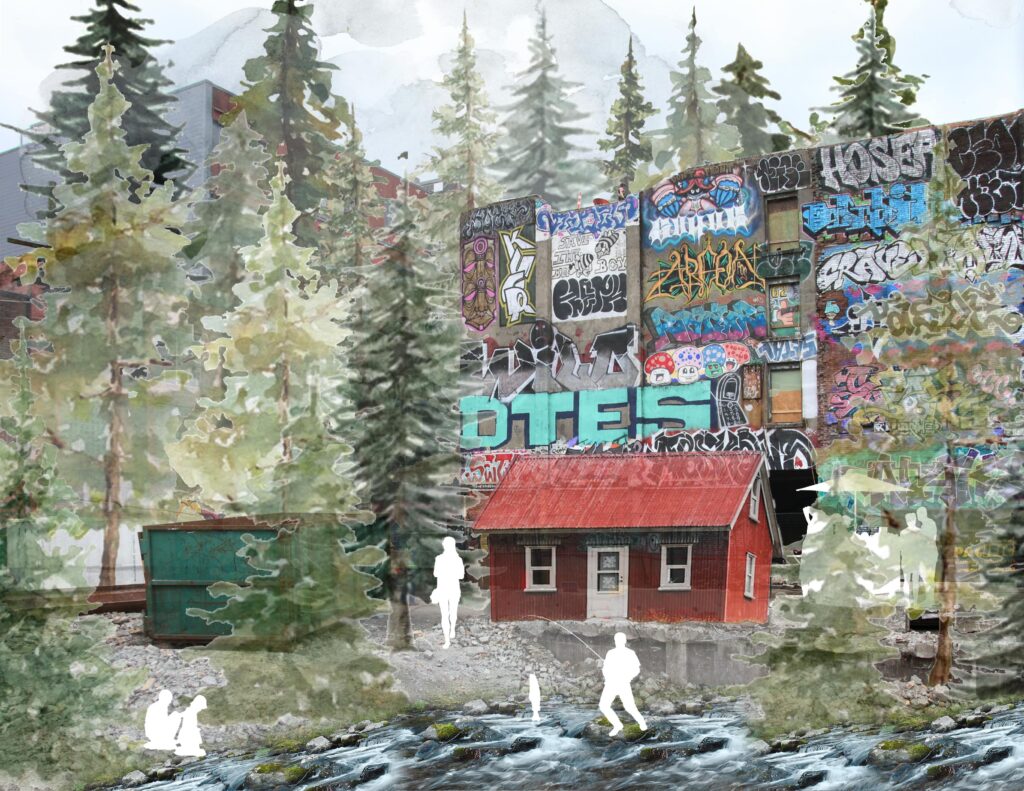
The graduate project explores chaos theory as a design framework for landscape architecture and other fields of design. It is argued that due to the Anthropocene, the economic, social, and ecological systems are hyper-connected with one another, however it is the economic system that is dictating social welfare and ecological health. This connection of systems create a situation where urban planning and landscape design is highly dependent on monetary goals of profit and cost saving. The overarching inquiry examines chaos theory’s potential to challenge economic-centric systems, to address social needs, and offer to sustainable solutions to climate change. Design interventions will mimic chaotic behaviours in complex adaptive systems. The interventions will take form as a zine booklet for users to manifest their needs in their landscape. Oppenheimer Park, in Vancouver, BC, is selected to experiment on how these interventions will unfold into society. The system encompassing Oppenheimer Park will be modelled as a strange attractor. Design interventions will be used to alter the attractor’s parameters to test how it will behave in a simulation, giving landscape architects a framework on on how their design goals may impact landscape interactions.